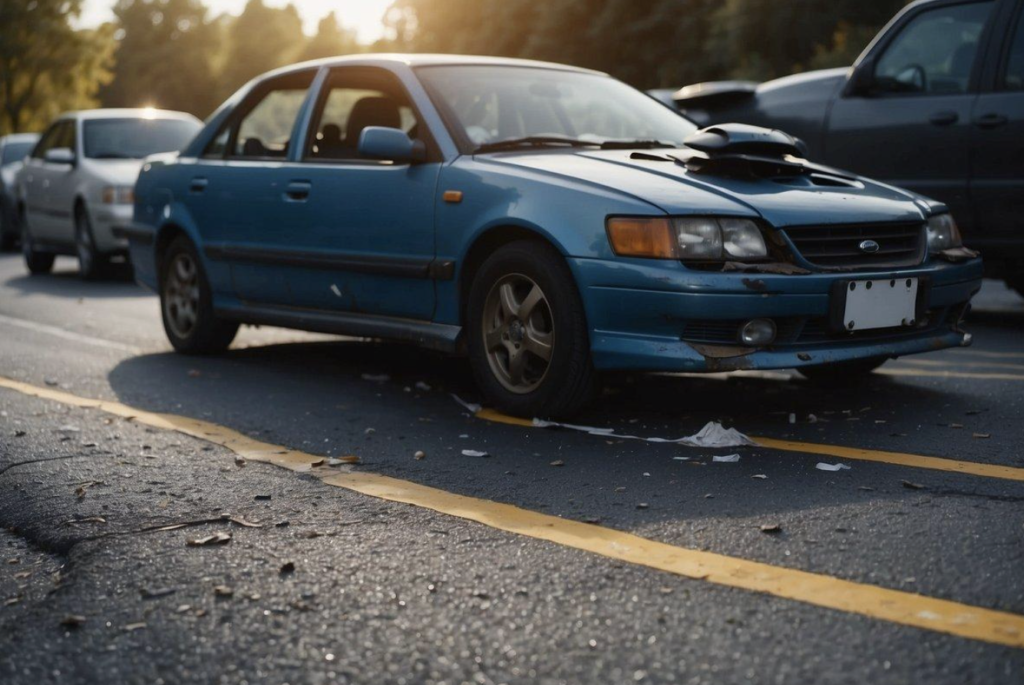Now Reading: The Roles of the Healthcare and Legal Systems in Truck Accident Recovery
-
01
The Roles of the Healthcare and Legal Systems in Truck Accident Recovery

The Roles of the Healthcare and Legal Systems in Truck Accident Recovery
When a truck crash happens, it can be detrimental to those involved. Sometimes, even fatalities or life-altering injuries and financial burdens arise. Following a truck accident, the healthcare and legal systems play large roles in helping victims recover physically, emotionally, and financially. Here, we will look at these two industries’ roles and offer a comprehensive perspective on the intricate recovery process.
Immediate Medical Care
The healthcare system’s first and foremost role in truck accident recovery is to provide immediate medical care to the victims. The severity of injuries in truck collisions can range from minor to life-threatening. Prompt medical attention is key in preventing further harm. This also ensures the best chances of recovery.
Emergency medical services, paramedics, and hospitals all come into play during this critical phase. Victims receive initial assessments, treatment, and stabilization in the emergency room, including imaging, diagnostic tests, and surgical interventions when necessary.
Healthcare professionals, including doctors, nurses, and specialists, work tirelessly to address injuries. These injuries can include fractures, internal bleeding, head trauma, and spinal cord injuries.
Ongoing Medical Treatment
Recovery from a truck accident is a lengthy and often arduous process. The healthcare system’s role extends beyond the initial emergency care to ongoing medical treatment. Victims may require surgeries, physical therapy, occupational therapy, and psychological counseling to address physical injuries, pain management, and mental health concerns.
Chronic conditions resulting from the accident, such as spinal cord injuries or TBIs, may require long-term care. This system provides a network of professionals to manage these cases while offering comprehensive support to the victims.
Rehabilitation Services
Rehabilitation is a crucial aspect of truck accident recovery. These professionals provide specialized rehabilitation services to help victims regain functionality and improve their quality of life. Physical, occupational, and psychological therapists work collaboratively to create customized rehabilitation plans tailored to each victim’s unique needs.
Rehabilitation facilities and programs offer comprehensive services, including mobility training, assistive device management, speech therapy for communication issues, and mental health support to address the emotional toll of the accident.
Legal Support for Victims
The legal system has become a massive player in truck accident recovery. Legal professionals help victims seek justice and financial compensation. Victims often face significant medical expenses, loss of income, and pain and suffering. Talk to a truck accident lawyer in Indianapolis who can work diligently to navigate the legal complexities of obtaining compensation for victims.
Investigation and Evidence Gathering
A fundamental responsibility of the legal system is to conduct a comprehensive investigation into the truck accident. This includes gathering evidence at the scene of the accident, scrutinizing police reports, questioning witnesses, and assessing the truck’s service records along with the driver’s credentials. Attorneys work with accident reconstruction experts to establish liability and build a strong case.
Negotiating with Insurance Companies
Truck accidents often involve multiple parties, including truck drivers, trucking companies, and insurance companies. The legal system will negotiate with these insurance companies to ensure victims receive fair compensation for their injuries and losses. Seasoned attorneys know the tactics insurance adjusters use and can advocate for victims’ rights effectively.
Preventing Future Accidents
The healthcare and legal systems also have a role to play in preventing future truck accidents. Healthcare professionals can share their insights on injury patterns and suggest safety measures. They can also inform policy changes. Meanwhile, the legal system can advocate for stricter regulations and enforcement of safety standards within the trucking industry, promoting safer practices and reducing the likelihood of future accidents.
Filing Lawsuits
In cases where negotiations do not yield a fair settlement, the legal system allows victims to file lawsuits against the at-fault parties. Attorneys help victims navigate the legal process, ensuring all necessary paperwork is filed correctly and within the specified deadlines. They also represent victims in court, presenting evidence and arguing.
Securing Compensation
The legal system ultimately plays an important role in securing compensation for truck accident victims. Compensation may comprise medical expenses, lost wages, pain, suffering, and other damages from the accident. Attorneys aim to secure the maximum compensation to help victims rebuild their lives and cover their ongoing medical expenses.
Emotional Support
Recovering from a truck accident is not just a physical and financial journey. Victims often experience significant emotional trauma, which can be overwhelming. The healthcare system provides counseling and mental health services to address these emotional challenges.
Similarly, through personal injury attorneys, the legal system offers emotional support by guiding victims through the legal process and providing reassurance during a difficult time.
Advocacy for Victims’ Rights
The healthcare and legal systems can advocate for victims’ rights. Healthcare professionals advocate for their patients’ well-being, ensuring they receive medical care and support. Legal professionals, on the other hand, advocate for victims’ rights in the legal context, striving to ensure their clients obtain fair compensation and that justice is served.
Conclusion
Truck accidents are devastating events that can have far-reaching consequences for victims. The healthcare and legal systems play intricate and essential roles in helping these victims recover in more ways than one. Ultimately, their collaborative efforts aim to help victims recover and promote safer practices within the trucking industry.









